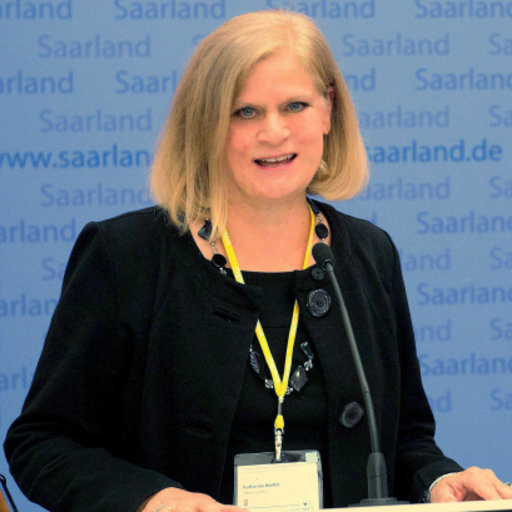Keynotes
At the EATEL summer school on Technology-Enhanced Learning, we are striving to invite excellent and diverse researchers as keynote speakers!
Rich and Intelligent Open Educational Resources for Strengthening Transversal Skills: Techno-Pedagogical Design and Adoption
☕ Monday 12th May @ 9:00h
Digital solutions play a key role for enabling blended learning in higher education, where the acquisition and the appropriation of core competences and transversal skills require engaging learning experience and value-adding interactive resources. Hence, it is essential to help educators in the process of designing and implementing digital resources, considering both their pedagogical and their technological dimensions, as well as the generative AI trend. In this talk, we will discuss adaptation of learning scenarios and the design of rich and intelligent open educational resources to strengthen the transversal skills required by the current sustainability and information literacy challenges. The issues of assessing transversal skills will also be discussed.
Passion for Collaborations Supported by TEL
☕ Monday 12th May @ 21:00h
The initiation to my TEL research journey began in the 90s and was made possible through collaboration with my colleagues in networks and computer science. They were seeking killer applications to drive on the information superhighway, under construction at the time, I was seeking innovative pedagogies to engage learners in second language and culture acquisition. Our partnerships gave me both the vision to design and orchestrate computer supported collaborative learning environments, reciprocal peer tutoring, cultural mirroring, international project-based learning, and a passion for the creative power of multidisciplinary research and international cooperation. During my talk I will explore the educational, professional and societal assets of collaboration, enhanced through technology, and offer suggestions for success. Back in the 90s, no one imagined that a pandemic would provide our videoconferencing prototypes the disruptive opportunity to profoundly impact culture world-wide. Looking to the future, I am curious to explore the pivotal role that technology might play in enriching learning and knowledge building through international mediation, especially among peers, to meet the challenges our global society faces today.
Digital Learning Games: Applying Artificial Intelligence to Fun and Learning
☕ Tuesday 13th May @ 9:00h
Digital learning games, like other educational technologies, benefit from recent advancements in Artificial Intelligence (AI) and, in particular, Large Language Models (LLM). My lab at Carnegie Mellon University, the McLearn Lab, developed a digital learning game called Decimal Point and conducted numerous classroom studies over the past decade, involving over 1,500 students (see McLaren, 2024). In these studies, we explored various game-based learning and Learning Science issues and principles, such as comparing learning outcomes between the game and traditional online approaches, examining if increased student agency enhances learning and enjoyment, and identifying effective self-explanation prompts. This talk will cover our game design, its technological foundation, and highlight a study integrating a Large Language Model. In the second half, I will discuss AI’s role in enhancing fun and learning in digital games, presenting case studies and the future direction of AI in this field.
Stimulating Metacognition in Problem Solving: Are Prompts the Ultimate Key?
☕ Wednesday 14th May @ 9:00h
To excel in problem solving, students must cultivate strong metacognitive abilities that enable them to self-regulate their problem-solving processes. This keynote delves into the power of reflective prompts in enhancing metacognition during problem-solving.
We will begin by exploring the design and implementation of these reflective prompts, highlighting their role in fostering deeper reflection and understanding. Next, we will analyze the impact of these prompts on students’ conceptual understanding, metacognitive skills, strategic problem-solving approaches, and overall academic achievement. Additionally, we will discuss whether investing in tailoring prompts to specific topics pays off.
Join us for an insightful discussion on the implications of these findings and discover whether prompts truly hold the key to unlocking enhanced metacognition in problem solving. In the keynote, we will also share details on the research methodology, providing inspiration for your own academic journey and research practices.
Exploring Learner-Data Interaction
☕ Thursday 15th May @ 9:00h
Understanding how learners engage with their learning data is an under‑explored research challenge. To start unpacking this challenge, we will discuss our research on participatory consent practices and interactive learning‑analytics dashboards, to examine how students perceive, negotiate, and act upon their data within educational technologies. Our research highlights that learner attitudes toward data collection and their data use are shaped by dialogue, reflection, and design choices. These insights call for situated and participatory approaches to designing for learner data within educational technologies.




